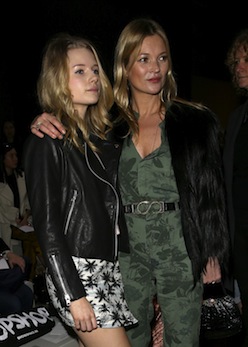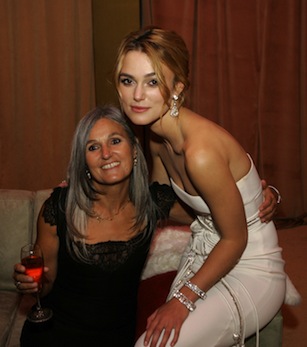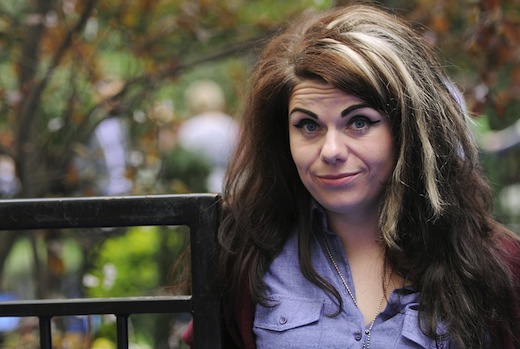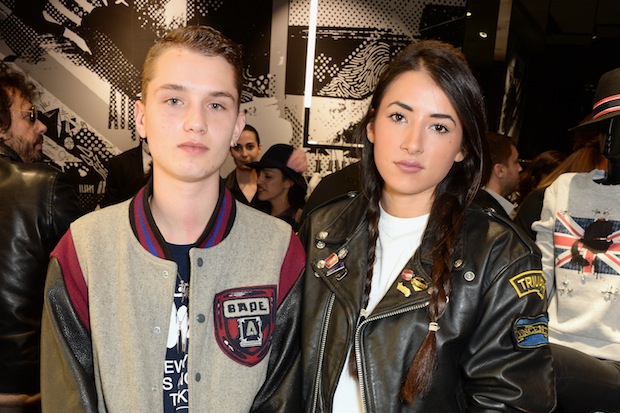Recently one morning, as I was weeping over Caitlin Moran’s (daughter of Mr and Mrs Moran of Wolverhampton) brilliant book How to Build a Girl — specifically, the heartbreaking way she writes about coming from an impoverished family — a report came on to the radio with the glad tidings that working-class white children are now doing worse in schools than any other ethnic group. Said one Graham Stuart, the Conservative chairman of the education select committee, ‘They do less homework and are more likely to miss school than other groups. We don’t know how much of the underperformance is due to poor attitudes to school, a lack of work ethic or weak parenting.’
No, we don’t, do we? But what if it was to do with feeling that there’s just no point in bothering? That the odds are now so shamelessly stacked against a white working-class child getting a decently paid job, let alone one they actually enjoy, that to try hard at school would be to give up the last remnants of agency and rebellion? It’s no secret that social mobility — which just a few years back we all presumed would rock on regardless — has reversed, doing over the already vulnerable working class with the force of a steamroller. Yes, you chirpy Cockneys and you stoic Northerners, not only have the jobs your parents did — making things — disappeared, but the cushy jobs that a blessed few of you once might have escaped the surly bonds of the proletariat by nabbing — modelling, acting, writing for newspapers — have now been colonised by the children of the rich/famous/well-connected, too.

Nepotism has never been so shameless and so widespread, and the Sads — Sons and Daughters — are everywhere. The very morning I heard that report, I found the following — without hunting around — in the media. Over at Mail Online, a bum-faced 17-year-old called Rafferty Law (son of Jude ’n’ Sadie) was walking the catwalk with ‘close friend and fellow model’ Cora Corre (granddaughter of Vivienne Westwood). What’s the betting they’ll soon be joined on the runway by Kate Moss’s little sister Lottie, 16, recently signed with Storm and photographed for Calvin Klein, exactly like her sister before her? Looking at photos of Moss Junior, one is spitefully reminded of that line some wag came out with about Greta Garbo’s stand-in, one Geraldine Dvorak: ‘She has everything that Garbo has. Except that thing that Garbo has.’
Upmarket at the Times, one Henry Dimbleby (son of David and cookery writer Josceline) was bewailing the diets of working-class schoolchildren in a piece with the unintentionally hilarious headline ‘Let them eat veg!’ While on the cover of Elle, Keira Knightley (daughter of playwright Sharman Macdonald) pouted out with her usual constipated air. She’s a creature of contradictions, that one; forever banging on about how she’s just an ordinary sweary bird down the pub who fame and fortune somehow just happened to — and yet, by her own admission, asking her parents if she could have an agent at the age of three and actually getting one at the age of six. In Elle she’s still at it; when asked if she would discourage a potential daughter from taking up acting, Knightley huffs, ‘Oh, 100 per cent I’d absolutely tell her not to. I would 150 million trillion per cent be totally discouraging.’
Hmm. Am I alone in finding this far from being Knightley’s most convincing performance — even more so than the one where she played a bounty hunter? She is, after all, married to James Righton of the Klaxons, and surely they’ve seen the memo that, these days, the children of famous showbiz parents have to be in showbiz too? And — whisper it — their dirty little secret is that they really do like it that way. Though simple starlets may compare showing off for lots of money to being a soldier (Paltrow and Cruise), being raped (Charlize and Kristen) and being stoned to death (Geldof), that’s just to put us ‘civilians’ off and keep the jammy jobs safe for their own spawn.

If a Martian came down today, he’d believe that only the children of the famous are allowed to have enjoyable careers — the royal family started it, but only now are we seeing how crass and counterproductive it is when people get jobs because of who their parents are. The actresses Julie Walters and Maxine Peake have spoken searingly of how few working-class actors are now coming through, and even reality TV has fallen to the toffs in the shape of Made in Chelsea, in which confectionery and hotel heirs compete to see who can best prove The Only Way Is Essex wrong. While fewer than one in ten British children attends a fee-paying school, a whopping 60 per cent of rock music chart acts are now ex-public school, compared with 1 per cent 20 years ago. And as for the level of nepotism in journalism, don’t get me started.
Insult follows injury follows indignity when it comes to the prospects of today’s white working-class youth. Sport used to be an avenue of escape, for example, but the head of Ofsted has just warned that a ‘disproportionately’ high number of successful athletes are privately educated, ‘cementing the social inequality that holds our nation back’. That’s the thing about nepotism; it’s ultra-conservative but the opposite of patriotic, wasting the endless talent of all those could-have-been runners and writers born on the wrong side of the tracks. Though 93 per cent of children attend state schools, they only make up a third of top athletes; and I wonder what the stats are when it comes to the media.
No matter, because the BBC have just announced that they have hatched a new £2 million scheme to fast-track black and Asian writers, actors and presenters. That’ll be the young blacks and Asians who in fact do better than poor whites in school — but as the white trash have a lack of work ethic, it’s probably their fault. Similarly, the Guardian has a ‘Positive Action Scheme — Ethnic Minorities’ in place, but zero for poor white would-be journalists.
These deaths by a thousand snubs add to the impression of white working-class children being young ghosts in their own country, a new blank, betrayed generation of Chesterton’s famous Secret People:
‘We hear men speaking for us of new laws strong and sweet,
Yet is there no man speaketh as we speak in the street.
It may be we shall rise the last as Frenchmen rose the first,
Our wrath come after Russia’s wrath and our wrath be the worst.
It may be we are meant to mark with our riot and our rest
God’s scorn for all men governing. It may be beer is best.
But we are the people of England; and we have not spoken yet.
Smile at us, pay us, pass us. But do not quite forget.’
These ghosts may be less patient than their pacified parents, and prime candidates for the Ukip dream.
Nepotism makes countless people sad, but does it make its beneficiaries happy? From Prince Charles to Peaches Geldof, I’d say not. How can you possibly have any pride in yourself knowing that you achieved your position because of the sperm lotto? How can you sleep, knowing of the people from poor backgrounds who would be more suitable for the job than you?

But I have no pity for them. The psychologist Abraham Maslow wrote that ‘The most beautiful fate, the most wonderful good fortune that can happen to any human being, is to be paid for doing that which he passionately loves to do.’ For the kind I left behind, it is always winter and never Christmas.
‘I know what happened to girls like me, in history,’ writes Caitlin Moran in How to Build a Girl. ‘They are hard-handed, oily and unperfumed in manual labour. They drudge so hard they look 50 at 30. I would have been in a factory, or a field, with no books, music or trains down to London. I would have been one of a million sad cattle, standing in the rain, wholly unrecorded.’
She and I escaped, but for millions of girls — and boys — like us, it’s history once more.
Got something to add? Join the discussion and comment below.
Get 10 issues for just $10
Subscribe to The Spectator Australia today for the next 10 magazine issues, plus full online access, for just $10.
You might disagree with half of it, but you’ll enjoy reading all of it. Try your first month for free, then just $2 a week for the remainder of your first year.















Comments
Don't miss out
Join the conversation with other Spectator Australia readers. Subscribe to leave a comment.
SUBSCRIBEAlready a subscriber? Log in